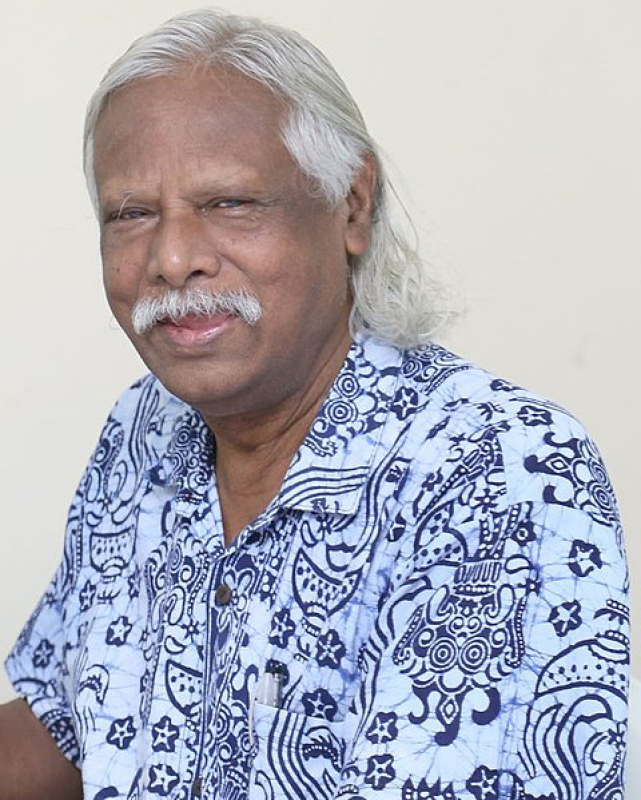- Islami Andolan to Contest Election Alone in 13th Poll |
- 3 killed in Uttara building fire; 13 rescued |
- Late-night deal ends standoff: BPL resumes Friday |
- Global Marine Protection Treaty Enters into Force |
- US Immigrant Visa Suspension Triggers Concern for Bangladesh |
Dr. Zafrullah the warrior stops, his battles will go on

Dr. Zafrullah the warrior stops, his battles will go on
Dhaka, Apr 13 - He just never stopped fighting his wars even after liberation. It never probably occurred to him to make peace with his battles and move on. In so many ways, he was the closest to what we would call a permanent warrior. He passed away but his battles will go on.
It began in his college days when he was already infected by idealism which met his “revolutionary zeal “. The two made a potent broth that Zafrullah bhai drank and never stopped fighting for his causes, no matter how great his opposition was. And it's amazing when both idealism and his sense of social justice are both collectively comatose; he remained loyal to them no matter what.
Zafrullah bhai stands above most of us because he dared to stand taller than most around him. In all the years he has not hesitated to be himself. He followed the right wagon with as much zeal as he did the occasional wrong one’s because he was a believer in people’s rights.
What separated him from the rest was that he was selfless, totally driven by the idea that health was a right that all had a right to claim. And that it was one of the biggest democratic causes of them all. And he never stopped until death finally called his name.
The man from Sector 2
In some way, Zafrullah bhai was the perennial man from Sector 2, 1971 war. He was the helmsman of the Bisramganj hospital that he helped establish in that war zone, not just treating the warriors but training nurses and paramedics too. For many who were part of the 1971 war, it never really stops and he was one of them.
The war days belonged to the warriors but as soon as the war was over, the new state generated new needs and causes and Zafar bhai became a warrior for them. Fifty years later, it’s impossible to understand the kind of impact he had on society, emerging from the ashes of the war, who needed a voice to speak as audaciously as he did.
The health establishment
He took on the health establishment like none had done before and in this fight, many of his fellow fighters were his old comrades from Sector 2, led by Shahadat Chowdhury, Editor of the weekly Bichitra. Bichitra gave him a platform to reach out and become a vanguard as Zafrullah bhai launched media campaigns, health rights volunteers and also began to mobilize supporters to begin his greatest adventure, the Gonosasthaya complex.
The health treatment infrastructure was not a problem but when he began his pharmaceutical company, he faced massive opposition, both national and international. But with all his warrior instincts, he fought back and though he didn’t triumph, it was not a sweat for a lost cause. Today, many aspects of the general health sector cause dismay, but in some ways, health rights are more accessible for many than they were in the early days of Bangladesh particularly in machine availability.
The political Zafar bhai
I am not sure how committed he was to politics but I think he truly believed that health rights could not be assured unless political rights were won. So from the early days he supported causes and campaigns, supporting candidates, causes and political platforms right from the birth days of Bangladesh. Till the last day, he was doing what he thought was the right thing to do. Due to media exposure, many will remember him more as the political person he had become in many eyes in the last decade or so than the health rights person I saw he was most committed to as a cause.
We have walked together for long though his increasing political commitments and my lack of interest in political media and talk shows made meetings less frequent. But I remember one day, when we were both being tried in the same case –contempt of court- for a petition we had both signed, and were being searched by the High Court security. His frayed trouser end and his keychain got tangled and as he bent down to separate them he laughed in his own way and said, “Sometimes, I think it would be the best if I could go back to my village and become the local doctor”.
Farewell Zafrullah bhai, you always were our greatest village doctor.-UNB

